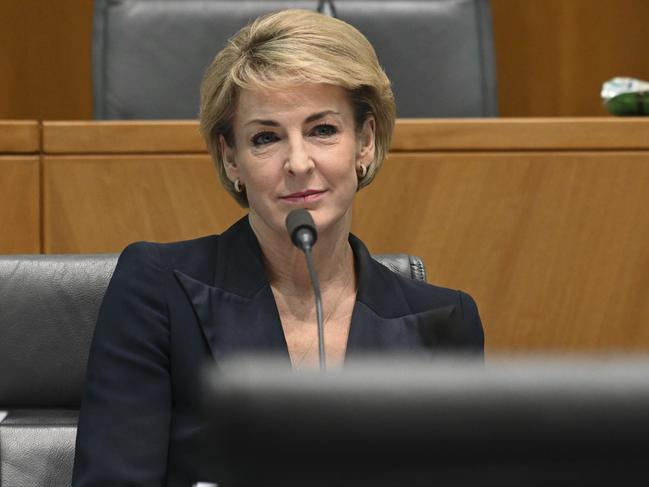Construction industry pushes back against Labor’s industrial relations reforms
The construction industry is pushing back against Anthony Albanese’s major new laws. Here’s why.
At Work
Don't miss out on the headlines from At Work. Followed categories will be added to My News.
The peak body for builders has railed against most of Labor’s industrial relations legislation, including its plans to demolish the construction industry watchdog.
The Master Builders Association has opposed Labor’s Secure Jobs, Better Pay Bill, which will legislate the abolition of the Australian Building and Construction Commission.
Master Builders deputy chief executive officer Shaun Schmitke argued on Friday the ABCC was needed to police the powerful Construction, Forestry, Maritime, Mining and Energy Union.
“I don’t think they’re going to become model industrial citizens,” Mr Schmitke said of the CFMEU at an inquiry into Labor’s industrial relations Bill.
The Coalition set up the ABCC in 2016 to tackle lawlessness and union intimidation in the building industry.
Labor has said some of the controversial body’s powers will be returned to the Fair Work Ombudsman and to health and safety regulators.
Master Builders and the Coalition have both fiercely opposed scrapping the ABCC since Labor announced it would do so earlier this year.
Mr Schmitke spent most of Friday’s hearing defending the ABCC, before his allocated time descended into a squabble between Liberal senator Michaelia Cash and Labor senator Tony Sheldon.

Under questioning from Greens and Labor senators, Mr Schmitke was forced to defend a report Master Builders commissioned from big four firm EY, which claimed the abolition of the ABCC would cost the economy $47bn in lost productivity.
“I’m not an economist … but I have no reason to believe that report is not anything other than completely appropriate and reflective of the modelling that was commissioned,” Mr Schmitke said when pressed on criticism of the report’s methodology.
Mr Schmitke gave evidence the day after the government’s Secure Jobs, Better Pay legislation passed the lower house by 80 votes to 56.
Labor has already pared back the legislation and has left the door open to making more concessions in a bid to get its package of reforms through the Senate by the end of the year.
The most contentious element of the Bill is the “single-interest” multi-employer bargaining stream.
This stream will give workers the ability to bargain and potentially stage industrial action across multiple businesses if the majority of employees at each company agree to do so.
Employer groups – including Master Builders and the National Farmers Federation – have pushed back against the proposal by saying it will lead to industry-wide strikes and be detrimental to the economy.

Labor has agreed to exclude the commercial building and construction industry from multi-employer bargaining.
Australian Council of Trade Unions secretary Sally McManus accused big business of waging a “scare campaign”.
“We are not organising multi-employer bargains in small businesses,” she told the ABC.
“We’ve never had high union membership in small businesses, even when we had 60 per cent union membership and we’ve got 14 per cent now; it is not going to happen.”
Peter Dutton said employer groups had been prepared to support a “sensible package”, but were united in their opposition to a “bad Bill”.
“I am not sure that small businesses fully understand the impact on their businesses and the fact that it takes away from them the ability to negotiate and puts it in the hands of the unions with (the Fair Work Commission),” the Opposition Leader told Today.
Deputy Prime Minister Richard Marles disagreed, saying he thought the laws would make industrial relations “a whole lot easier” for businesses.
“We’re encouraging people to get around the table, employers and their workers, so that they can do more productive, better deals,” he told Today.
Originally published as Construction industry pushes back against Labor’s industrial relations reforms


